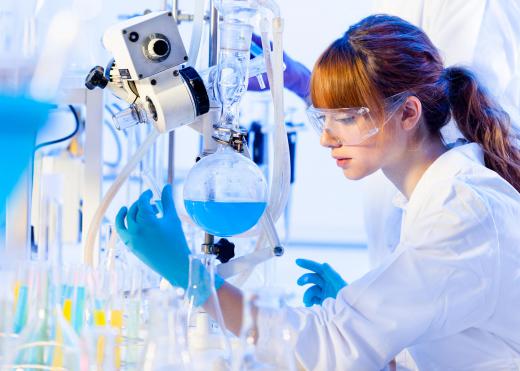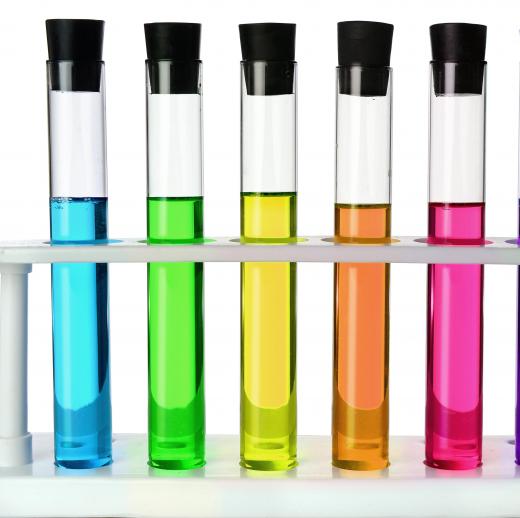What Are the Different Methods for Chemistry Quality Control?
Chemistry quality control is a program that attempts to minimize errors due to careless performance or inadequate procedures. The concept is applicable to analytical laboratories, as their primary function is to analyze unknown samples and report concentrations of various compounds. Many industrial and food-processing facilities are supported by laboratories that use chemistry quality control programs. These programs generally consist of controls placed on reagents and supplies, analytical procedures, and the training and qualification of personnel.
An adequate chemistry quality control program is critical to an analytical laboratory. Their reputation is their most important business asset. These laboratories will go to great lengths to ensure the accuracy and precision of their reports.

Technicians often perform many repeated procedures on a daily basis. Boredom and carelessness can be serious risks to good work. To avoid this, management will often rotate people through various departments. While this alleviates the boredom issue, it does increase the training overhead.
Standard samples that are unmarked and duplicate samples should be included with every run. Procedures should be available at all times. The technician should have access to is a senior chemist for consultation.

Analytical labs often set up round-robin sampling programs. Several labs will test a standard spectrum of samples and compare reports. The sample should include a broad range of concentrations and represent samples from different sources. Lab managers can enroll in blind sample subscription services to evaluate their analytical performance.
Laboratories that support industrial processes tend to be very specialized. The amount of analytical work they do is limited to the production they support. Often, there is testing done on the line on a continuous basis to maintain uniformity. The chemistry quality control program will be similar to an analytical lab tailored for limited capability. The added duties will be to monitor the line quality control technicians.

Medical laboratories in hospitals employ specially trained technicians called med-techs. They follow very strict guidelines that center not only on the analytical results, but on traceability of the sample to the patient. Many of their samples include human blood and cell liquids that degrade quickly. Proper handling and preservation of the samples are critical.

Chemistry quality control goes beyond analysis of samples. The stockroom manager should use a comprehensive reagent control system that monitors the date reagents were purchased and required storage conditions. This is in addition to the material safety data sheets (MSDS) required by many governmental agencies.
Mistakes made by stockroom clerks can be a common source of error. Procedures must be outlined and followed precisely when making standard solutions or removing any reagent from a jar. Commonly used chemicals should be purchased in quantities that will be consumed typically within one year.
Technicians often perform analytical work in chemical laboratories. Much of the work is routine and can be documented so that repeatable results are obtained. Except under the most routine conditions, a chemist with formal education should oversee all operations. In large laboratories, supervisors are often chemists who have specialized in a particular subfield, such as metal extraction or organic compound analysis.
AS FEATURED ON:
AS FEATURED ON:














Discuss this Article
Post your comments